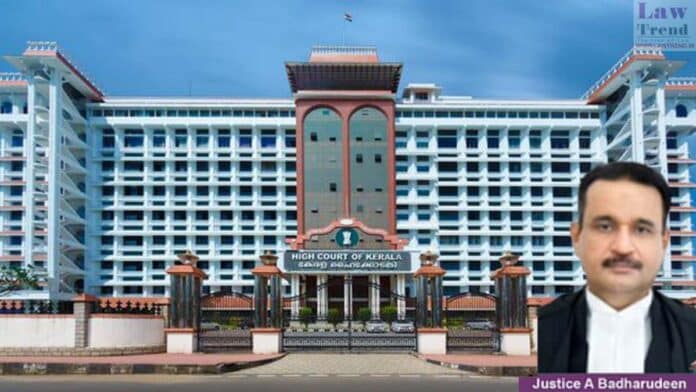Recently, The Kerala HC answered an important question that whether the plea of res judicata and constructive res judicata would apply in criminal proceedings.
The bench of Justice A. Badharudeen was dealing with the petition filed under Section 482 of the Cr.P.C to quash the complaint pending before the Judicial First Class Magistrate Court-I, Pala.
In this case, the petitioner filed two petitions challenging the maintainability where the petitioner alleged to have committed offences punishable under Section 138 of the Negotiable Instruments Act on the allegation that a cheque for Rs.15,00,000/- and Rs.11,00,000/- each in the above complaints got dishonoured when the same was presented for collection.
Joy George, counsel for the petitioner submitted that the Annexure-A1 medical certificate shows that the 2nd respondent is a mentally ill person. As such, enquiry into his mental status is absolutely necessary before proceeding for trial and, therefore, the petitions are liable to be allowed.
The issue for consideration before the bench was:
- Whether the plea of res judicata and constructive res judicata would apply in criminal proceedings?
- Whether res judicata or constructive res judicata is substantiated in the case?
The bench referred to the case of P. Mohanraj & Ors. v. Shah Brothers Ispat Private Limited, where it was held that “A perusal of the judgment in Ishwarlal Bhagwandas [S.A.L. Narayan Row v. Ishwarlal Bhagwandas,] would show that a civil proceeding is not necessarily a proceeding which begins with the filing of a suit and culminates in execution of a decree. It would include a revenue proceeding as well as a writ petition filed under Art.226 of the Constitution, if the reliefs therein are to enforce rights of a civil nature. Interestingly, criminal proceedings are stated to be proceedings in which the larger interest of the State is concerned. Given these tests, it is clear that a S.138 proceeding can be said to be a “civil sheep” in a “criminal wolf’s” clothing, as it is interest of the victim that is sought to be protected, the larger interest of the State being subsumed in the victim alone moving a Court in cheque bouncing cases, as has been by us in the analysis made herein above of Chapter XVII of the Negotiable Instruments Act.”
High Court looked into the case of P. Reghuthaman v. State of Kerala & Ors, where in paragraph 7 of the judgment, the Court was called upon to answer the application of res judicata or constructive res judicata in criminal proceedings. In para.7 of the judgment, the Court, after referring to precedents referred to in para.8, held that principles of res judicata and constructive res judicata would squarely apply to criminal proceedings also.
The bench stated that the principles of res judicata and constructive res judicata would squarely apply in criminal proceedings as well, and it is equally settled that where a person, who is convicted or acquitted, not to be tried for same offence since the said trial is barred under Section 300 of Cr.P.C. Further the same is double jeopardy, which is prohibited.
High Court stated that “……….Annexure-A1 medical certificate produced by the then counsel for the 2nd respondent while canvassing regular bail in a serious criminal offence, shall not be the foundation to hold that a 2nd respondent is a person having mental insanity, as contended by the petitioner herein. Therefore, the prayer to quash the complaints on the said ground, after suffering defeat before the Court in an earlier Crl.M.C, which was upheld by the Apex Court, is found to be unwarranted, rather not justified……..”
In view of the above, the bench allowed the petition.
Case Title: Mrs. Sasikala Menon v. State of Kerala
Bench: Justice A. Badharudeen
Case No.: CRL.MC NO. 6415 OF 2022
Counsel for the petitioner: Joy George
Counsel for the respondent: Sooraj Thomas Elenjickal




